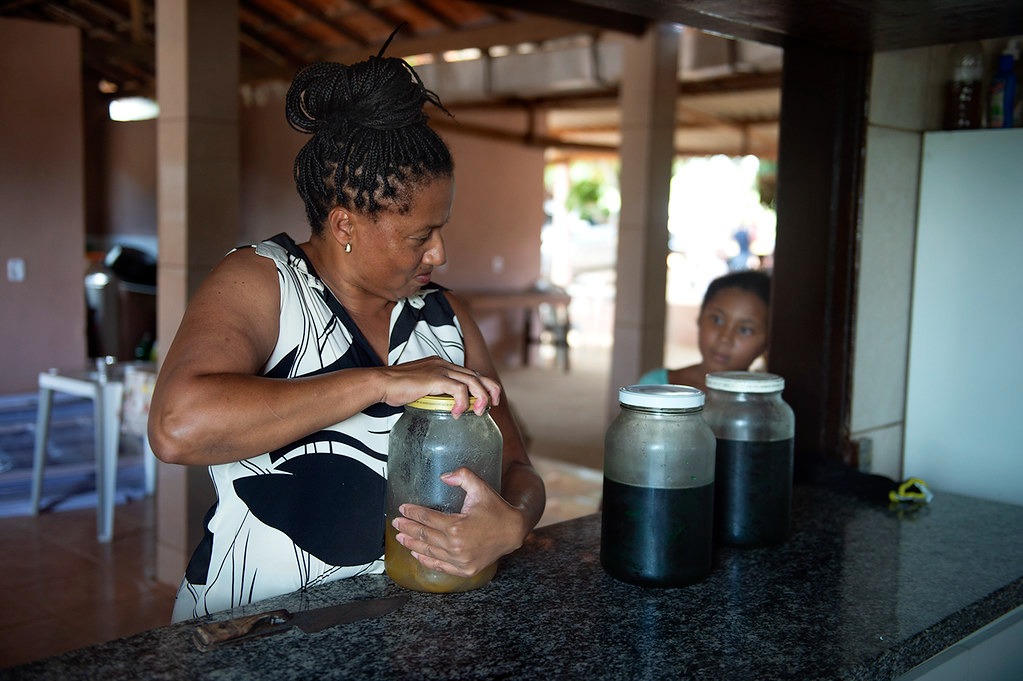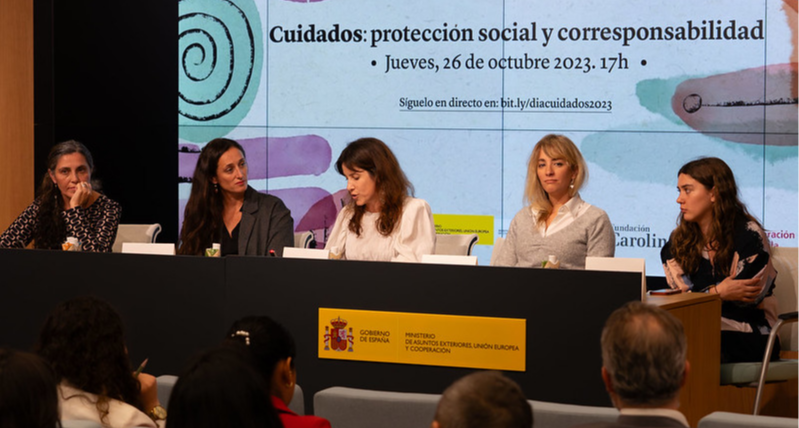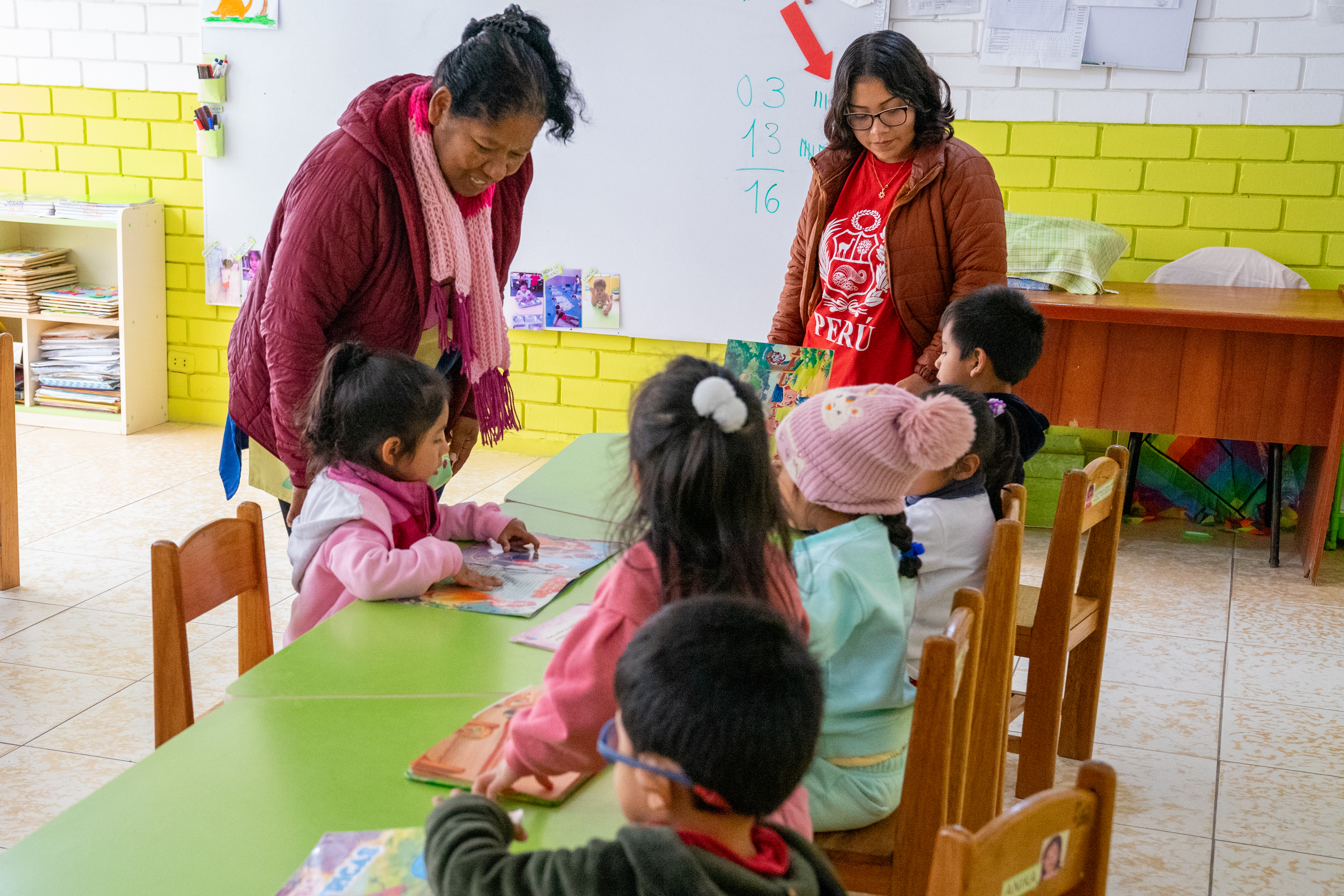Cuidados
La reivindicación del derecho de los cuidados, entendido como el derecho a recibir cuidados, a cuidar y al autocuidado, forma parte de los derechos humanos de las personas. El derecho al cuidado implica, además, el reconocimiento del valor del trabajo, la garantía de los derechos de las personas que brindan cuidados y la eliminación de estereotipos que atribuyen el cuidado como una responsabilidad exclusiva de las mujeres.
Según los datos de encuestas realizadas en 83 países, el promedio de tiempo dedicado a los cuidados asistenciales y al trabajo doméstico no remunerado es tres veces superior para las mujeres que para los hombres. Los datos disponibles indican que el tiempo que se dedica a tareas domésticas es la causa de una proporción elevada de la brecha entre los géneros en el trabajo no remunerado.
Por ello, el cuidado de las personas es un asunto central en el compromiso con la igualdad de género, la equidad social y el sostenimiento de la vida.
La Cooperación Española tiene entre sus objetivos contribuir a la reducción de las desigualdades en el acceso al derecho a cuidar, a ser cuidada/o, así como al autocuidado. La adopción de una política exterior feminista impulsa aquellas medidas que permitan des-feminizar unas tareas que, tanto en el ámbito doméstico como en el ámbito profesional, son realizadas casi exclusivamente por mujeres.
En ese sentido, la Ley 1/2023, de 20 de febrero, de Cooperación para el Desarrollo Sostenible y la Solidaridad Global, en su artículo 4.1, al establecer los objetivos que ha de perseguir la política española de cooperación, incluye expresamente la promoción del acceso a la protección social y a un sistema adecuado de cuidados. Con la misma perspectiva, la Estrategia Europea de Cuidados también anima a adoptar un enfoque integrado que se centre en la persona y en la profesionalización de los cuidados, con servicios basados en la comunidad.
Este asunto central, también tiene relevancia internacional. Al respecto, el pasado 24 de julio de 2023 la Asamblea General de las Naciones Unidas aprobó mediante la Resolución 77/317 en la que proclama el día 29 de octubre Día Internacional de los Cuidados y el Apoyo, conmemorándose este año su primer día.
Es por ello que, la AECID contribuye a la implementación de varias líneas de trabajo para impulsar un modelo escalable de políticas públicas y servicios a nivel local que contribuyan al reconocimiento, reducción y redistribución del trabajo de cuidados, como es el caso de la prueba piloto en Perú.
Dado que los sistemas de cuidados son caros, han de contar con presupuestos progresivos, sólidos, con perspectiva de género, que garanticen estos derechos. Por eso, es tan importante la labor integral, interseccional y conjunta de todos los actores para lograr una sociedad más igualitaria.

La AECID y ONU Mujeres trabajan en un modelo para transformar el sistema de cuidados

La Cooperación Española conmemora el Día Internacional de los Cuidados y el Apoyo

La corresponsabilidad de los cuidados, una prioridad para la Cooperación Española
- Moves the carousel to its element number 1
- Moves the carousel to its element number 2
- Moves the carousel to its element number 3



